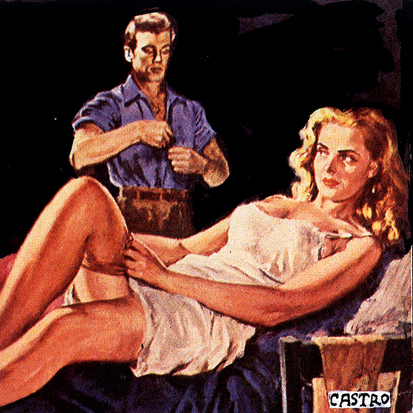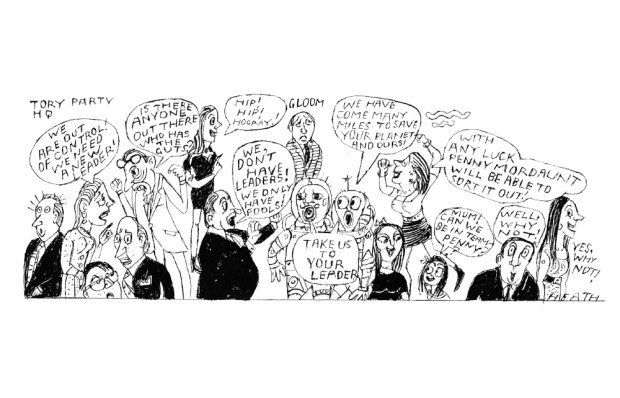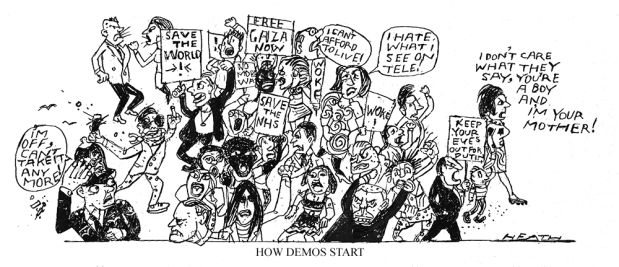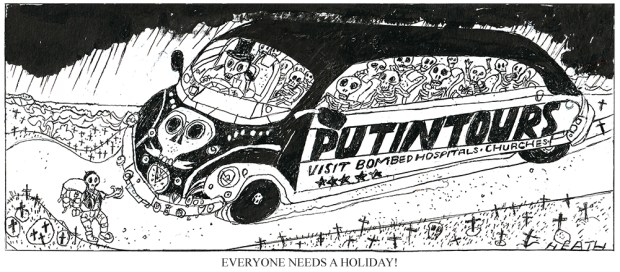Home
A storm passed over England, with plenty of warning. The strongest gust, of 99mph, was recorded at Needles Old Battery, Isle of Wight. Of 570,000 households that lost power, 160,000 were left without it by sunset. About 200 trees fell on railway lines. A crane collapsed on to the roof of the Cabinet Office in Whitehall. A fourth big energy company, of Britain’s six, announced price rises, making the average increase 9.1 per cent. Tony Cocker, the chief executive of E.on, told the Commons energy committee that he had written to David Cameron, the Prime Minister, suggesting a full investigation of the market. A woman intent upon visiting the Alhambra found she was on an aeroplane to Grenada in the West Indies.
Grangemouth petrochemical works reopened after its workers accepted the survival plan drawn up by its owners Ineos. Stephen Deans, the Unite official at the heart of a dispute between the union and Ineos, resigned from the company. Britain’s gross domestic production grew by 0.8 per cent in the third quarter of the year. The government planned to launch an Islamic bond, a sukuk, next year. The benefit-cost ratio of the HS2 line from London to Birmingham is £2.30 for each pound spent, according to the new government case, having fallen from £2.50. Work to improve the existing north-south rail lines as an alternative would cost £20 billion and require 2,770 weekend closures involving 144,000 hours of work, according to a report by Network Rail and Atkins, the engineering firm. The Labour party began to make doubtful noises about HS2. Sir Anthony Caro, the sculptor, died, aged 89.
The trial began at the Old Bailey of Rebekah Brooks, the former chief executive of News International, and Andy Coulson, the former editor of the News of the World, charged with conspiring with others to listen to voicemails. The Supreme Court ruled that the government’s ‘back to work’ schemes were legally flawed; the case arose from a woman set to work in Poundland. Ray Teret, a former chauffeur to Jimmy Savile, was released on bail after appearing on charges including 15 counts of rape of a female under 16. Dave Smith, a BBC chauffeur, aged 67, charged with sex offences unconnected to Jimmy Savile, was found dead on the morning of his trial. The growing popularity of swaddling babies is endangering the development of their hips, according to a paper by Nicholas Clarke, a professor of orthopaedics.
Abroad
The United States, according to German newspaper reports, had been spying for a decade on the use of her mobile phone by Angela Merkel, the Chancellor of Germany, renowned for her constant fiddling with her mobile. The reports were based on secret documents from the National Security Agency leaked by Edward Snowden, its fugitive employee. Spain complained to the United States about reports that it had monitored 60 million Spanish telephone calls in a month. Diane Feinstein, the chairman of the US Senate intelligence committee, said she was opposed to NSA collection of intelligence on leaders of US allies. General Keith Alexander, the director of the NSA, said that much of the data cited by the European press was initially collected by European intelligence. Lou Reed, the singer and songwriter, died, aged 71.
Five bodies were found and 35 people were missing after a vehicle carrying migrants hoping to reach Europe broke down in the Sahara en route from Niger to Tamanrasset, Algeria. In Libya, gunmen stole $54 million by attacking a van at Sirte. Iran hanged 16 prisoners in retaliation for the deaths of at least 14 guards in an ambush on the border with Pakistan. Russia put aside 24.7 million cubic feet of snow in case there was not enough to go round at the winter Olympics at Sochi. McDonald’s is to stop serving ketchup made by Heinz, which was bought in February by owners with connections to Burger King.
Thousands of Syrian civilians were allowed by the army to leave the besieged Damascus suburb of Muadhamiya, where hunger had become pressing. A car bomb exploded outside a mosque at Suq Wadi Barada, near Damascus, after Friday prayers, killing at least 40. The World Health Organisation confirmed ten cases of polio in Syria. By the end of their tour, inspectors from the Organisation for the Prohibition of Chemical Weapons were unable to visit two of the sites disclosed by the Syrian government, because of the civil war. An eight-mile rail tunnel linked the European and Asian sides of Istanbul, under the Bosphorus. CSH
Got something to add? Join the discussion and comment below.
Get 10 issues for just $10
Subscribe to The Spectator Australia today for the next 10 magazine issues, plus full online access, for just $10.
You might disagree with half of it, but you’ll enjoy reading all of it. Try your first month for free, then just $2 a week for the remainder of your first year.














Comments
Don't miss out
Join the conversation with other Spectator Australia readers. Subscribe to leave a comment.
SUBSCRIBEAlready a subscriber? Log in